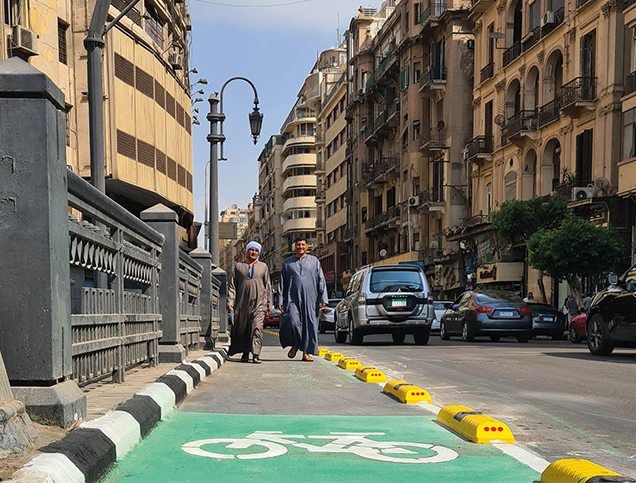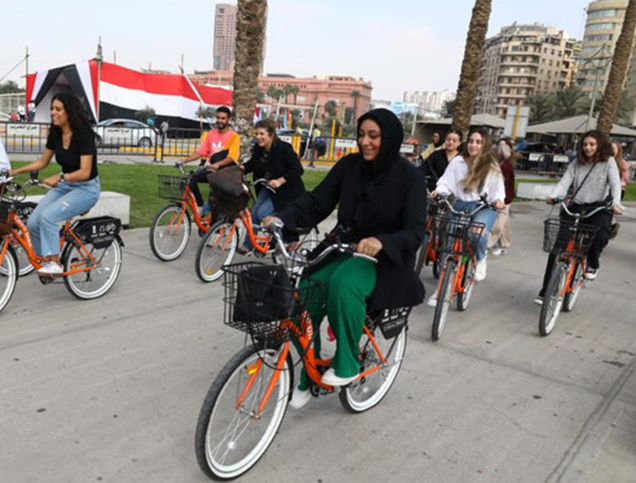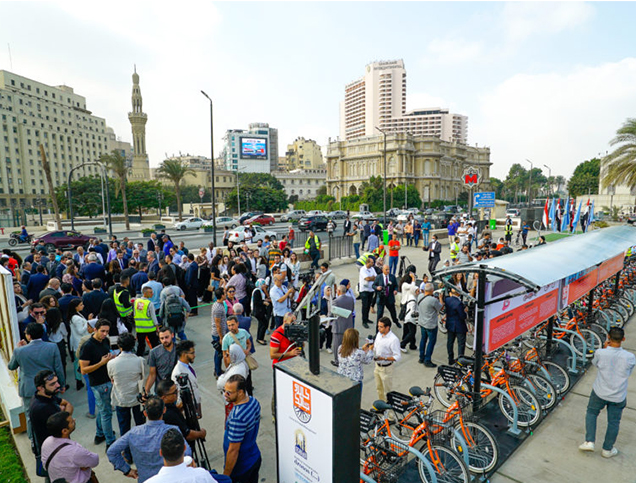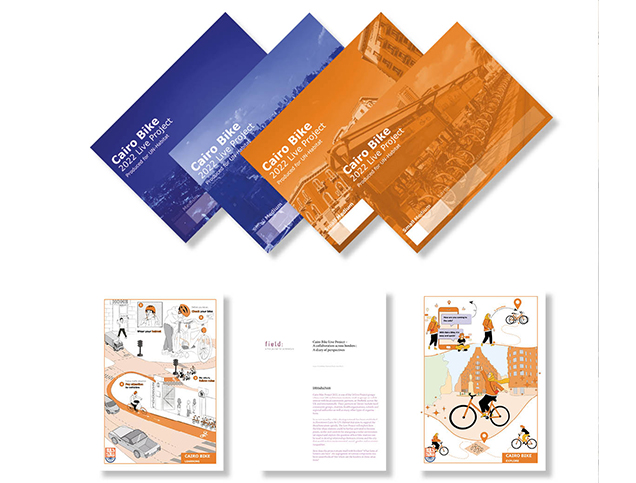
Close

Approach Words: Integrated City, Sustainability, Urban Livability
Public Policy Instruments: Communicative, Organization, Physical Intervention, Planning
The Cairo Bike project is a new development initiative introducing Egypt’s first public bike-sharing system in the capital city Cairo.1 2 Launched in October 2022, this project represents a significant step toward sustainable urban mobility,3 with the vision of “providing an eco-friendly and affordable transportation option for Cairo’s residents and visitors”.4 5
The Cairo Bike project aims to reduce traffic congestion, improve air quality, promote public health through encouraging physical activity, and enhance the overall quality of life in the city.6 7 These objectives improve urban mobility while aligning with Egypt’s broader national strategy for sustainable urban development and environmental conservation.8 9

Title: Streets in downtown Cairo organized with bike lanes and separated from the car lanes.
Source: Click Here

Title: participants were encouraged to explore the daily challenges faced by cyclists and identify opportunities for improving cycling infrastructure in Cairo.
Source: Click Here

Title: Launch one of the Cairo downtown bike stations.
Source: Click Here

Title: part of the printed flyers to promote the project by different development campaigns.
Source: Click Here
To implement these objectives, the Cairo Bike project initially covers an area of over six square kilometers across Downtown Cairo, El-Sayeda Zainab, Garden City, and Al Attaba,10 11featuring:
In terms of sustainability, the Cairo Bike project incorporates eco-friendly practices such as solar-powered stations and aims to create protected bike lanes.22 23 The project also seeks to promote cycling culture as a low-carbon alternative to traditional transportation.24 25 The initiative includes the development of protected bike lanes, with 17 kilometers planned and 2 kilometers already completed.26

Owner/Developer (Public)

Owner/Developer

Consultant/Designer
Institute for Transportation and Development Policy (ITDP)41
The Cairo Bike project is a collaborative effort involving multiple stakeholders. It was launched by the Cairo Governorate in 2016 with support from ITDP Africa, UN-Habitat, and the Swiss Drosos Foundation.27 After a competitive bidding process, Rascom-Donkey, an Egyptian and Danish consortium, was selected to operate the bikeshare system.28 29
The project has already seen significant success, with over 25,000 users since its launch.30
The implementation of the Cairo Bike project is divided into phases:
Currently, the project continues to grow, with plans to further develop cycling infrastructure and promote inclusive mobility, particularly focusing on expanding transportation options for women.35
The initiative aims to improve urban transportation, reduce carbon emissions, and create a more sustainable and accessible city transportation system.36 37 38
Project Link
https://www.instagram.com/cairobike.live_project/
Endnotes
References